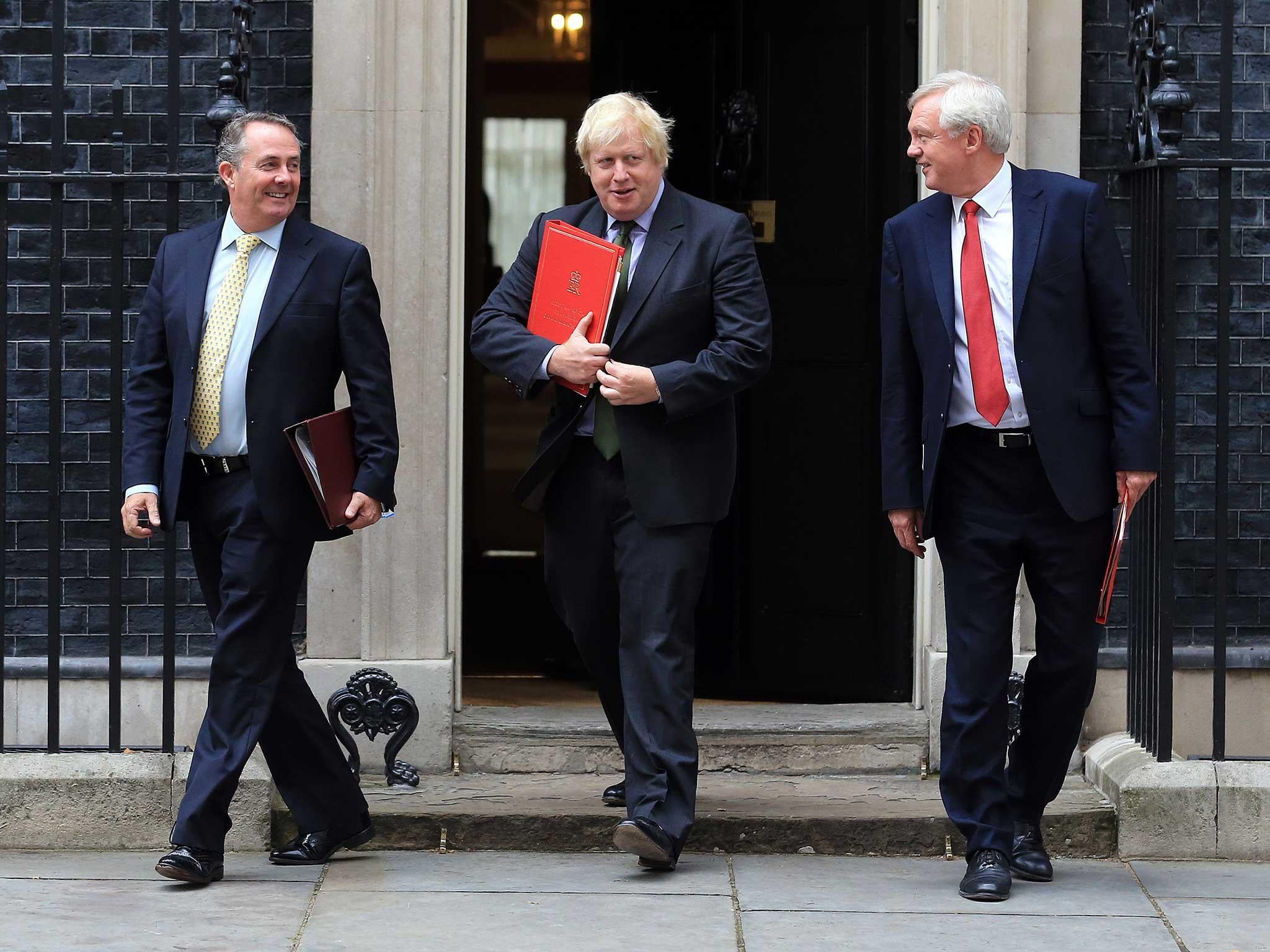The biggest benefit of Brexit might be the economic hit we take
If the City of London were to take a hit and the economy were to suffer as a result – which, as a Remainer and a Europhile, I tend to think it will – there is an argument to be made that the UK would actually be all the healthier for it


One of the messages declaimed most loudly by the Remain campaign before the UK referendum was a warning that Brexit would spell disaster for the City of London and the financial services that were now this country’s economic lifeblood. That message was also one of the most ill-judged of any during the whole campaign. Yet it seems that neither side has still quite got the point.
After denouncing what they branded “Project Fear”, victorious Brexiteers are now exulting in figures that supposedly show everything in the economic garden to be lovely. There you are, they say, the Remainers were just scaremongering, as we said all along. There is nothing to worry about in going it alone; indeed, if anything, the UK will benefit. They cite an upturn in consumer spending, no serious fall in house prices, no flight of the brightest and best, and no real uptick in inflation.
The Remainers for their part insist that the shocks are already creeping up on us and the worst is yet to come. The de facto devaluation in sterling may be helping exports and bolstering share prices, but it has already increased the cost of most foreign holidays, and higher prices of most imports will start to come through just as winter sets in. Any impression of economic strength, they go on, is mainly illusory, reflecting the effect of devaluation on the stock market and the Bank of England’s pre-emptive cut in interest rates. Only when the Government finally gets around to invoking Article 50, they maintain, so triggering the withdrawal process irrevocably, will the economic fallout really start to be felt.
This bickering over the economy, however – its talking up by one side and talking down by the other – is not only premature in the extreme, but misses one simple point. When the former Chancellor, George Osborne, and his friends in the City spread doom and gloom about the future of the city should Leave prevail, the response in many quarters was not entirely as they had scripted. Yes, there were some howls of empathetic anguish, but there were also shouts of hooray – some articulated, many not.
To forecast, as Osborne and others did, that the sky would fall in on London and the City’s hugely profitable financial services was also to hold out the promise of a time when there could be a return to a real economy made up of real things, rather than a virtual economy derived from onscreen speculation in funny money. To add, as some Remain frontpeople did, that there would also be a flight of foreign banks from the City and that house prices in London could fall only compounded the rebel calls to “bring it on”.
In trying to defend the city from what they saw as the Brexit threat, its advocates were – unwittingly, it must be assumed – making a compelling case for the opposition. One person’s high-paying City job is another person’s precarious gig existence. One person’s security from high and ever-higher house prices is another person’s exclusion from home ownership. You could hardly find a better illustration of the clash of interests and cultures exposed by the referendum.
And here I must admit that I have a lot more sympathy for the rebels than a London-based home-owning Remainer should. It also strikes me that, in insisting that the economy will continue to flourish, the Brexiteers risk giving a hostage to fortune and perhaps missing a trick. Because if the City of London were to take a hit and the economy were to suffer as a result – which, as a Remainer and a Europhile, I tend to think it will – there is an argument to be made that the UK would actually be all the healthier for it.
Now it may be that the city will not shrink. It may be that all the foreign banks and finance houses with a presence there will continue to regard London as a necessary base for their global operations, whether or not it remains a gateway to the European Union. We know all the arguments about the time zone, the language, the quality of life, the schools and the shopping, and perhaps they will prevail.
But if – as appears likely – London banks post-Brexit lose the “passporting” system that gives them direct access to the EU single market – a threat much bandied about during the campaign – and if foreign companies start to transfer their operations across the Channel; if the number of people able and willing to pay high-end London property prices falls (and the pool of such people seems to have been vastly overestimated by construction companies anyway); and if – just if – as a result the high tide of cash flooding the capital starts to recede, what then?
The Remain campaign predicted that the UK as a whole could be drastically poorer. Another possibility, though, is that London starts to dominate the national picture less than it does now. The “great sucking sound”, complained of by pro-independence Scots during their referendum, would quieten down, and the enormous disparity in wealth both within the south-east and between London and most of the rest of the country would be reduced.
Of course, nothing will change the fact that political and financial power are centred in one city in the UK, unlike, say, in the US or in Germany. But the outsized contribution that London currently makes to national GDP - 22 per cent for 12 per cent of the population - is disproportionate, and leaves most other parts of the country far behind. Even George Osborne conceded that the economic dominance of London had its downside and is one reason why he championed the “northern powerhouse” - that, and perhaps his Cheshire constituency.
At a time (2014) when he was riding high as leader of Ukip and the referendum was barely a glint in David Cameron’s eye, Nigel Farage told an interviewer that if a decline in GDP were the price to be paid for greater social cohesion, he would accept the trade-off. I suspected then, and believe still more firmly now, that many – and not only Brexiteers – would agree with him.
Given that recent increases in national GDP have been shared more inequitably in the UK than in almost any other developed country; given, too, the extent of London’s economic dominance, some evening out of the disparities is surely overdue. Could it even be that a necessary internal economic and social rebalancing is eventually judged – even by reluctant Remainers – to be an actual benefit of Brexit?
Join our commenting forum
Join thought-provoking conversations, follow other Independent readers and see their replies
Comments
Bookmark popover
Removed from bookmarks